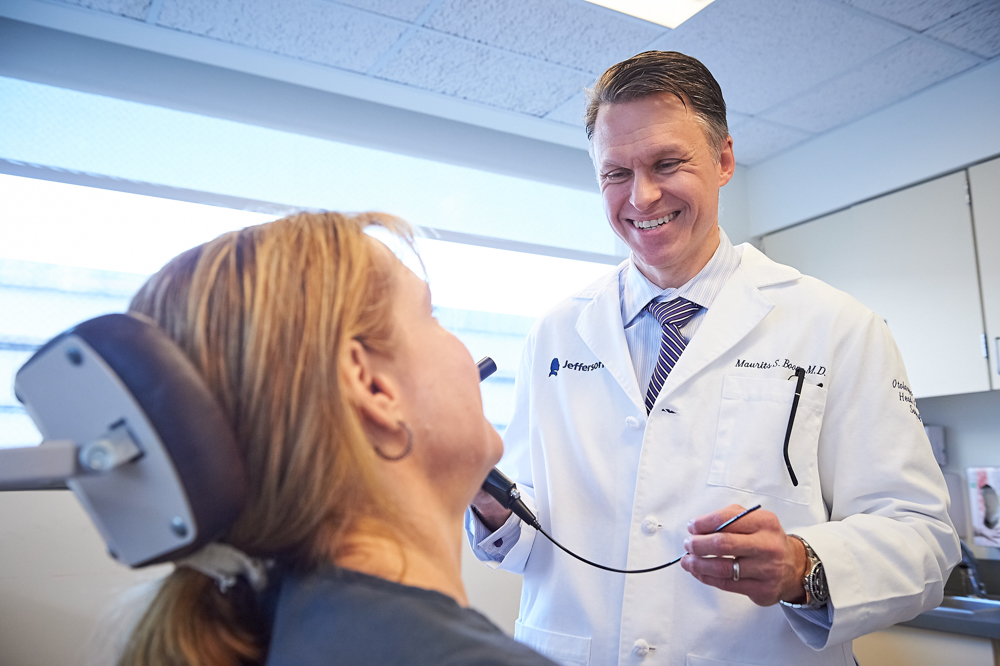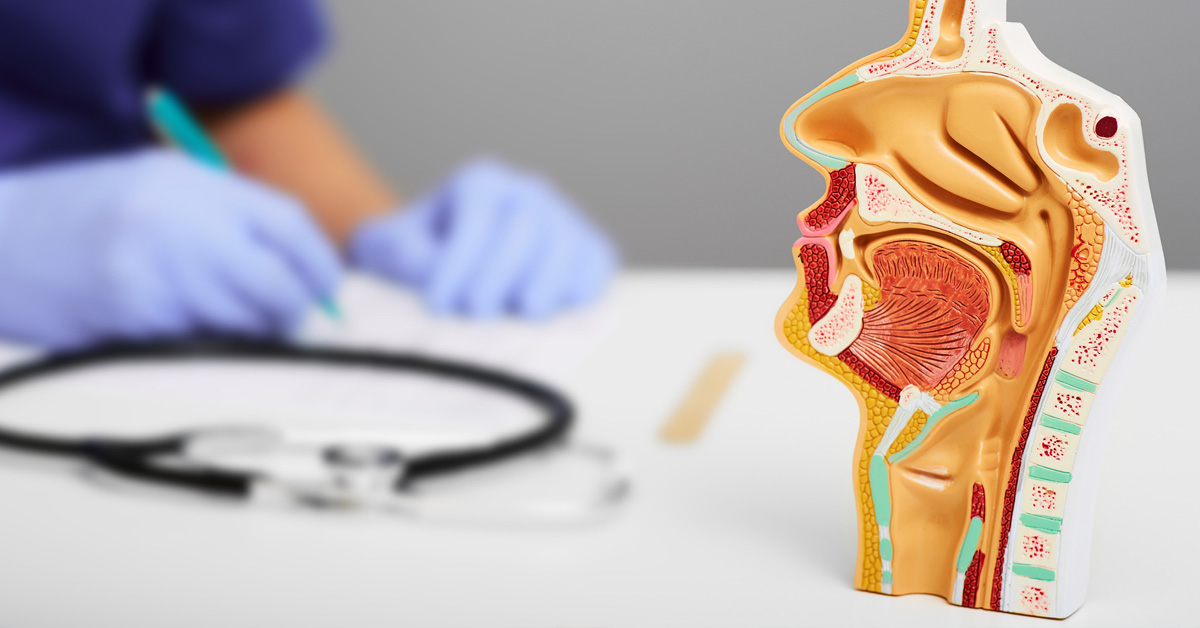The Otolaryngologist’s Role in Diagnosing Complex Head and Neck Conditions
The Otolaryngologist’s Role in Diagnosing Complex Head and Neck Conditions
Blog Article
Discovering the Area of Otolaryngology: What to Expect When You Get In Touch With an ENT
Otolaryngology, generally referred to as ENT, incorporates the medical diagnosis and therapy of nose, ear, and throat problems. For those experiencing related concerns, speaking with an ENT professional can provide quality and relief. Understanding what to anticipate throughout such examinations is necessary for effective communication and care. This introduction will certainly describe vital aspects of the ENT experience, consisting of typical reasons for visits and the procedures entailed in diagnosis and treatment.

Comprehending Otolaryngology: A Review
Otolaryngology, often referred to as ENT (Throat, ear, and nose) medication, is a customized branch of medication that concentrates on the medical diagnosis and treatment of problems affecting these important areas of the body. This area includes a wide variety of problems, including those pertaining to hearing, equilibrium, respiratory feature, and speech. Otolaryngologists are trained to take care of both clinical and medical therapies, using innovative strategies and technologies. Their competence expands beyond conventional disorders, addressing issues such as allergies, sinus infections, and hearing loss. In addition, they play an essential function in the monitoring of head and neck cancers cells, giving comprehensive care customized to individual person needs. In general, otolaryngology continues to be essential for preserving health and wellness and quality of life in damaged individuals.
Usual Factors to See an ENT Specialist
Lots of individuals seek the proficiency of an ENT expert for a range of factors, showing the varied nature of problems that influence the nose, throat, and ear. Common issues consist of chronic sinus problems, which usually brings about persistent nasal blockage and facial pain. Allergies and their associated signs and symptoms, such as sneezing and itching, likewise trigger brows through to these professionals (Otolaryngologist). Hearing loss, whether gradual or abrupt, is an additional considerable factor for examination. Furthermore, people may seek evaluation for throat problems, consisting of relentless hoarseness or ingesting troubles. Rest apnea, identified by interrupted breathing during rest, is regularly addressed by ENT specialists. Each of these conditions highlights the value of specialized treatment in managing intricate ENT-related wellness concerns
Planning for Your ENT Appointment
When getting ready for an ENT visit, it is important to gather pertinent info and take into consideration any kind of specific problems. Clients should compile a thorough case history, including previous ear, nose, or throat issues, surgeries, and present medicines. Recording signs-- such as regularity, duration, and extent-- can offer valuable understandings for the ENT expert. Additionally, individuals should prepare a checklist of questions they desire to ask, making certain that all problems are addressed throughout the go to. Bringing along any kind of appropriate clinical records or examination outcomes can further aid the ENT in comprehending the individual's problem. Ultimately, clients need to verify their consultation details, consisting of place, day, and time, to minimize any type of last-minute confusion. Correct preparation can improve the performance of the assessment and lead to much better outcomes.
What to Expect During the Examination
As the examination starts, the person can expect to take part in a thorough conversation with the ENT expert regarding their symptoms and case history. The expert will inquire regarding the duration, regularity, and intensity of signs and symptoms such as hearing loss, nasal congestion, or aching throat. Furthermore, the individual's previous medical conditions, drugs, and any type of pertinent family background will certainly be evaluated, assisting the specialist in creating a full understanding of the individual's wellness. The ENT might likewise inquire about way of living aspects, such as direct exposure to toxic irritants or irritants. This open dialogue develops a foundation for the appointment, making sure that the person's concerns are resolved and establishing the stage for any essential evaluations or recommendations for treatment.
Diagnostic Tests and Treatments in Otolaryngology
A series of diagnostic examinations and treatments are important in otolaryngology to precisely review and diagnose problems influencing the ear, nose, and throat. Common examinations consist of audiometry, which measures hearing here function, and tympanometry, examining middle ear stress. Nasal endoscopy allows visualization of the nasal flows and sinuses, while laryngoscopy analyzes the throat and vocal cords. Imaging methods, such as CT scans and MRIs, provide thorough sights of head and neck structures. Allergic reaction screening may also be performed to determine triggers for sinus or respiratory problems. These analysis tools make it possible for ENT experts to create a complete understanding of people' problems, guaranteeing tailored and effective management strategies. Correct diagnosis is necessary for successful treatment outcomes in otolaryngology.
Therapy Alternatives Provided by ENT Specialists
ENT professionals use a selection of therapy choices tailored to attend to certain conditions affecting the throat, nose, and ear. These therapies vary from traditional techniques, such as medication and way of life alterations, to even more invasive treatments. For instance, allergies may be managed with antihistamines or immunotherapy, while chronic sinus problems might call for nasal corticosteroids or sinus surgery. For hearing loss, ENT experts often recommend listening device or surgical interventions like cochlear implants. In instances of throat disorders, alternatives can include speech treatment or surgical procedures to remove obstructions. In addition, they may offer assistance for handling sleep apnea, including the usage of CPAP devices or medical treatments. On the whole, the goal is to improve people' lifestyle through personalized treatment and effective therapy strategies.
When to Seek Follow-Up Care With an ENT
Recognizing when to seek follow-up treatment with an ENT specialist is crucial for managing ongoing signs and symptoms or complications connected to throat, nose, and ear conditions. People must take into consideration scheduling a follow-up appointment if signs persist regardless of initial therapy, such as chronic ear discomfort, nasal congestion, or throat discomfort. Adjustments in hearing, equilibrium problems, or uncommon nasal discharge might also necessitate additional analysis. Additionally, if an individual experiences adverse effects from prescribed drugs or has gone through a procedure, follow-up care is essential to keep track of recuperation and address any type of concerns. Timely examinations can ensure efficient administration of conditions, protect against potential problems, and offer tranquility of mind concerning one's health. Seeking follow-up treatment promotes aggressive health monitoring in otolaryngology.
Frequently Asked Concerns

What Credentials Should I Seek in an ENT Specialist?
When seeking an ENT specialist, one must seek board accreditation, relevant experience, and strong patient reviews. In addition, effective communication skills and a caring technique can greatly enhance the total treatment experience.
Exactly how Do I Select the Right ENT for My Needs?
Choosing the ideal ENT expert entails evaluating their qualifications, experience, and patient evaluations (Voice). It is necessary to contemplate their communication design and method to therapy, guaranteeing they align with the individual's details health demands and choices
Are There Any Kind Of Risks Related To ENT Procedures?
The risks connected with ENT treatments might include infection, bleeding, anesthesia issues, and potential damage to surrounding frameworks. Clients must go over these threats with their doctor to comprehend individual concerns and guarantee informed decisions.
Exactly How Can I Manage Stress And Anxiety Before My ENT Consultation?
To take care of anxiousness before a visit, people can exercise deep breathing workouts, picture positive results, prepare concerns in breakthrough, and look for assistance from buddies or family, cultivating a feeling of peace of mind and calmness.
What Should I Do if I Experience Negative Effects From Treatment?
The person should promptly report them to their medical care copyright if side effects from treatment occur. Modifications to treatment or added treatments might be necessary to assure security and performance in managing their problem - Otolaryngologist. As the appointment starts, the individual can anticipate to involve in an extensive discussion with the ENT professional concerning their signs and medical history. These analysis devices enable ENT professionals to establish a complete understanding of people' conditions, making sure customized and efficient management plans. ENT experts use a selection of therapy choices customized to deal with specific problems impacting the nose, ear, and throat. When seeking an ENT professional, one should look for board accreditation, relevant experience, and strong patient evaluations. Selecting the appropriate ENT expert includes examining their qualifications, experience, and patient reviews
Report this page